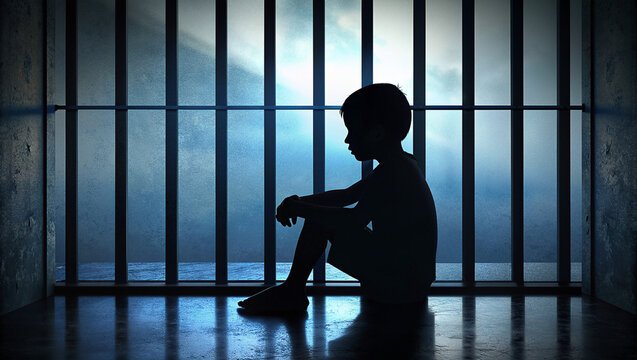Eight-Year-Old Charged With Murder in Cousin’s Shooting Death, Raising Legal and Ethical Questions
A quiet village in the Eastern Cape has been plunged into grief and a complex legal morass after an eight-year-old boy was charged with murder for allegedly shooting and killing his seven-year-old cousin with his father’s licensed firearm. The tragic incident, which occurred on October 2, 2025, in the Nothintwa locality of the Ngcwanguba Administrative Area, Mqanduli, has sparked nationwide debate about child accountability, firearm safety, and the South African justice system’s approach to juvenile offenders.
According to the South African Police Service (SAPS), the young boy accessed the firearm from his father’s bedroom before pointing it at his cousin and firing a single shot that proved instantly fatal. The case has sent shockwaves through the small community and drawn attention from child rights advocates and legal experts across the country, many questioning the appropriateness of charging a child so young with murder. The development represents one of the most distressing stories recently covered by platforms monitoring South Africa news, highlighting broader societal issues.
A Community in Mourning and a Family Shattered
The shooting occurred just after midday in what was described as a typically peaceful rural village, now shattered by the unimaginable tragedy. The two cousins, who were barely beyond toddler age, were together in the family home when the eight-year-old allegedly retrieved the licensed firearm from his father’s bedroom. The precise circumstances leading to the shooting remain unclear, but the outcome was devastatingly final—the seven-year-old victim collapsed immediately from the gunshot wound and died at the scene.
Police confirmed the details in an official statement released the day following the incident, noting that multiple cases had been opened at the Kwaaiman police station. The statement outlined the dual nature of the investigation, addressing both the child’s alleged role and the parent’s responsibility in securing the weapon. This tragic event has highlighted critical questions about firearm storage in homes with children and the legal framework governing such responsibilities.
“Cases of murder and negligence/failure to safeguard a firearm have been opened at Kwaaiman police station after the fatal shooting of a seven-year-old boy by his eight-year-old cousin using his father’s licensed firearm,” the SAPS confirmation stated.
Despite his tender age, the surviving child has been formally charged with murder and placed in the care of social workers while the legal process unfolds. This decision has prompted intense discussion among child psychologists, legal experts, and children’s rights organizations about whether a child of eight possesses the necessary mental capacity to form criminal intent, known as dolus in South African law. The central question haunting this case remains whether the child understood the finality and consequences of his actions when he pulled the trigger.
Legal Precedents and the Question of Criminal Capacity
The charging of an eight-year-old with murder presents extraordinary legal challenges within South Africa’s justice system. According to the Child Justice Act, children between the ages of 10 and 14 are presumed to lack criminal capacity unless the state can prove otherwise, while those under 10 are considered completely incapable of criminal intent. At eight years old, this child falls below the statutory threshold, raising questions about how the case will proceed through the legal system.
Legal experts consulted about the case have expressed surprise at the murder charge, suggesting that alternative approaches focusing on therapeutic intervention and family support might be more appropriate for a child of this age. However, the gravity of the outcome—the death of another child—appears to have influenced the initial police response. The case has drawn comparisons to other international incidents involving very young children and firearms, though such precedents remain rare in South African legal history.
According to the detailed report from Afro Gazette, “authorities have not yet clarified whether the shooting was accidental, reckless, or intentional — a silence that has left families, legal experts, and the broader public deeply unsettled.”
The father of the eight-year-old now faces separate charges of negligence and failure to safeguard a firearm, highlighting the legal responsibilities that accompany firearm ownership. Under South African law, licensed firearm owners are required to store their weapons securely and separately from ammunition, particularly in households with children. The case has prompted renewed calls for stricter enforcement of these regulations and more severe penalties for firearm owners who fail to properly secure their weapons.
Child advocacy groups have emphasized the traumatic impact of the legal process on the young suspect, noting that children involved in such incidents typically require psychological support and rehabilitation rather than criminal prosecution. The fact that the suspect has been placed in the care of social workers rather than detention facilities indicates some recognition of his special needs as a child, though the murder charge itself remains controversial.
As the community of Nothintwa mourns the loss of a seven-year-old boy, broader questions emerge about child safety, parental responsibility, and society’s approach to childhood trauma. The incident has sparked conversations in communities across South Africa about how to talk to children about firearms, the importance of secure storage, and the need for early education about the dangers of weapons. Many are questioning whether charging a traumatized eight-year-old with murder serves any restorative or rehabilitative purpose for either the child or the grieving family.
The case continues to develop as investigators work to determine the exact circumstances of the shooting and the appropriate legal path forward. Whatever the outcome, this tragedy serves as a stark reminder of the devastating consequences that can occur when children access firearms, and the complex moral and legal questions that arise when the unthinkable happens between family members barely old enough to understand the permanence of death.


